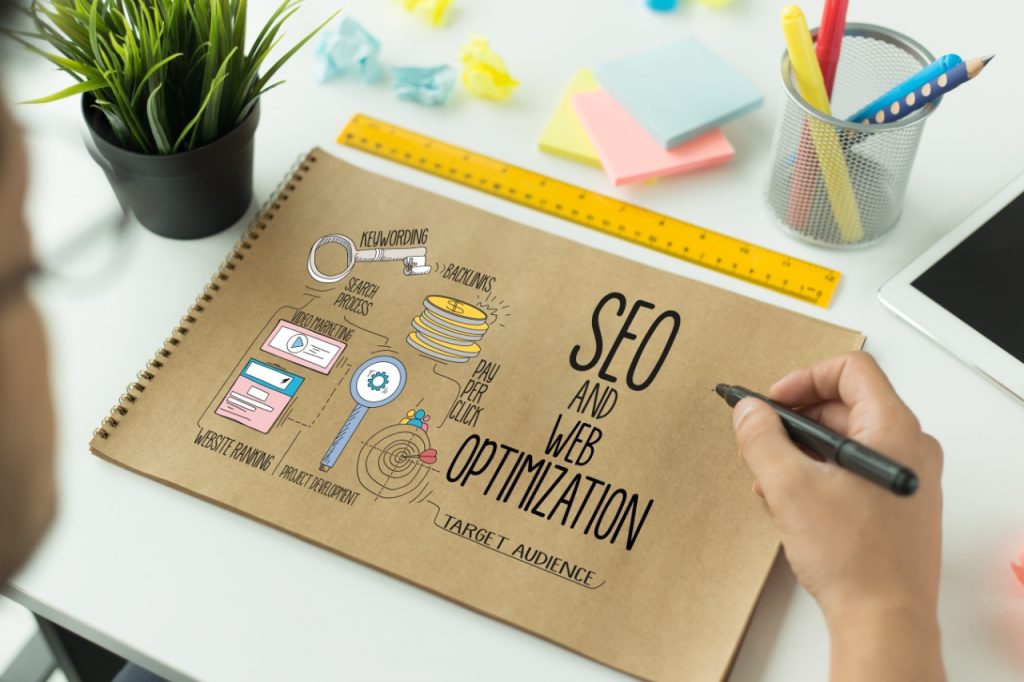To a newcomer, this is intimidating. However, there are more than 200 ranking factors considered by Google when formulating search results, and you’ll need to give them all at least some consideration when charting your campaign.
Plan an SEO campaign from scratch
So how can you plan an SEO campaign from scratch?
Elements of SEO
First, you should familiarize yourself with the elements of SEO. For your SEO campaign to be successful, it should include your attention to the following areas at a minimum:
Onsite content optimization
You’ll need to optimize the individual pages of your site with content targeted to your primary audience. That means including the right keywords and providing suitably detailed content for each page.
Technical SEO
Technical factors for optimization include optimizing the website for mobile devices, improving website loading speed, and ensuring the website is being indexed and canonicalized as intended.
Ongoing content development
SEO doesn’t work unless you have a steady stream of new content developed for your website. You’ll need to have some kind of onsite content development strategy in place for your brand.
Offsite content and link building
You’ll also need to develop some kind of offsite content development strategy, allowing you to build links pointing back to your domain to boost your authority and ranking potential.
Establishing Your High-Level Goals
Before you get into the details, you should also set your high-level goals. What are you hoping to achieve with SEO?
Organic/referral/direct/social traffic
Some people see incoming web traffic as their bottom-line goal. Organic traffic is the obvious choice here; it represents how many people find your website in search engines. However, you should also consider referral traffic (from external links), social traffic (from social media), direct traffic, and other channels since your SEO strategy can affect all of them.
Onsite conversions
Traffic may not be your highest priority if you’re more concerned with onsite conversions. Here, it’s more important to get the right kind of traffic and optimize your content to encourage more conversions.
Overall brand exposure
Some companies use SEO to increase their overall brand exposure, allowing other marketing and advertising strategies to do the work of attracting traffic and closing sales. Try to come up with a ballpark for how you want to grow in these areas (and others). For example, do you want to double your organic traffic in the first 3-months and hit a certain number of organic visitors after 6-months? Try to formulate SMART goals to direct your progress.
Executing the Work
You should also put together a plan for how you’re going to execute the work. While it’s technically possible for a single person to do all the work necessary for an SEO campaign, it’s much more efficient to have a team executing your work. These are some of your best options:
An in-house team
Hiring people in-house may seem like the best option since you’ll be able to work with them directly and control how they operate. However, in-house hires can be costly, and you may not have access to all the resources you need for a full campaign.
An agency
Hiring a marketing agency to handle your SEO campaign is another option. In some ways, it’s less expensive than hiring an in-house team, and it can give you access to a scalable range of resources that can help you regardless of your campaign’s current size. However, agencies may have restrictive contract terms.
Freelancers and contractors
You could also hire freelancers and contractors to do the work, assuming you can provide them with direction. They tend to be less expensive, but they also tend to be less reliable and harder to find.
Choosing the Right Keywords
Once you’ve decided on the general outline for your campaign, you can start deciding on the specifics; choosing the right keywords is one of the best places to start. First, do your keyword research and look for potential targets with a high search volume, a relatively low level of competition, and direct relevance to your target demographics.
Adjusting and Adapting
Don’t get too fixated on coming up with the “perfect” plan for your SEO campaign. Great SEO strategies are adaptable, dynamically responding to new information, techniques, and circumstances. The best thing you can do is come up with a general outline for your SEO campaign, then remain flexible as you gather more information and learn more about your niche.
